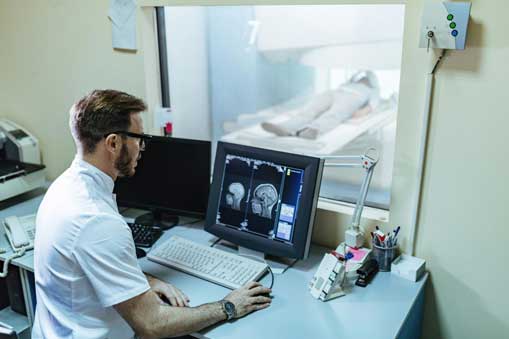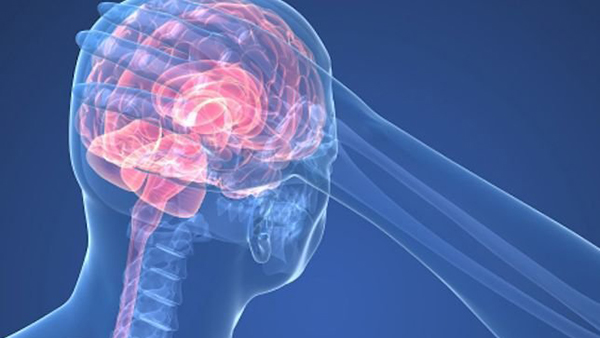Concussions are a type of traumatic brain injury that can occur when the head hits an object or when an object hits the head.
They can cause symptoms that should not be ignored. One should take concussions seriously and be evaluated by a doctor if one is suspected. Left untreated, they can lead to more severe and sometimes long lasting health problems. The most common causes of concussions are car accidents, sports injuries, and falls.
This article will explore whether or not a concussion can cause memory loss. We will also look at the effects of a concussion on memory and what can be done to help those who have suffered from it.
How common are concussions?
While concussions are most often associated with contact sports such as football and hockey, they can also occur in other settings, such as car accidents and falls.
According to recent estimates, concussions are pretty common, affecting up to 3 million people in the United States each year. This number is likely to be even higher, as many people do not seek medical attention for their symptoms.
While most concussions will resolve independently, some people may experience lingering symptoms or develop more severe conditions like chronic traumatic encephalopathy (CTE). As a result, it is essential to seek medical attention if you or someone you know experiences a concussion.
Concussions and memory loss
Considering the ever-growing concern over concussions in sports, it is no surprise that many people are questioning whether these severe head injuries can lead to memory loss.
While this is still a subject of ongoing research and debate, some evidence undoubtedly suggests that concussions may impact memory.
Studies have shown that moderate concussions can cause direct damage to brain cells, which can subsequently interfere with both short-term and long-term memories. Furthermore, many concussion sufferers report a general loss of cognitive function and concentration, suggesting that even relatively mild head injuries can impair memory.
Overall, it seems clear that there is a strong link between concussions and memory loss; however, more research is needed better to understand the extent and potential mechanisms of this relationship.
Now that we have explored the link between concussions and memory loss let’s explore other impacts of concussions.
What kind of memory is affected by concussions?
There are different types of memory: Prospective memory, Short-term memory, Long-term memory, and Memory of the injury. All types of memory can be affected by a concussion.
Prospective memory
Is the memory used to remember to do things in the future, such as taking medication or picking up the dry cleaning.
Prospective memory may be affected because the injury can interfere with the ability to make plans or remember to do things in the future.
Short-term memory
We use short-term memory to remember things for a short period, such as a phone number or groceries list.
Short-term memory may be affected because the injury can cause difficulty concentrating or paying attention.
Long-term memory
Is what we use to remember things for an extended period, such as our childhood or the birth of our first child.
Long-term memory may be affected because the injury can cause problems learning new information or retaining information learned before the injury.
The memory of the injury
Is what we use to remember the details surrounding the event that caused the concussion.
The memory of the injury may be affected because the concussion can cause amnesia, which is a loss of memory of the events surrounding the injury.
Impacts of Concussions
The following are some of the potential impacts of concussions:
Smell and Taste Dysfunction
Concussions can cause changes in your sense of smell and taste. This is one of the most common symptoms reported by concussion sufferers.
Suppose you experience a sudden change in your sense of smell or taste after a head injury. In that case, it is important to seek medical attention as this could signify a more serious condition.
Headache
Headaches are a common symptom of concussions and can range from mild to severe. They depend on the severity of the concussion and usually go away within a few days or weeks.
The severity of the headache may also indicate the severity of the concussion. If you experience a severe headache that does not go away, it is essential to seek medical attention as this could signify a more serious condition.

Fatigue
Fatigue is another common symptom of concussions and can make it difficult to do everyday activities. This symptom usually goes away within a few days or weeks.
If you experience fatigue that does not go away, it is important to seek medical attention as this could signify a more serious condition.
Sensitivity to light
Another common symptom of concussions is sensitivity to light. This can do reading, watching television, or even being in well-lit rooms difficult.
People who experience this symptom should try to limit their exposure to bright lights and seek medical attention if the symptom persists.
Parkinson’s Disease
Although it is rare, some research suggests that concussions may be linked to Parkinson’s disease.
This is a degenerative neurological disorder that can cause tremors, muscle stiffness, and problems with balance and coordination.
Parkinson’s disease typically affects people over the age of 60. Still, some studies have shown that people who have had concussions are more likely to develop the condition at an earlier age.
Sleep disturbances
In many cases, concussion sufferers report sleep disturbances such as insomnia. This can result from the physical and emotional stress of the injury.
If you are having trouble sleeping after a concussion, it is important to talk to your doctor, as this could be a sign of a more serious condition.
Sensitivity to noise
One of the less common symptoms of concussions is sensitivity to noise. This symptom can make it difficult to concentrate and can be very frustrating.
It doesn’t usually last for more than a few weeks, but it is important to seek medical attention if it does.
Alzheimer’s Disease
There is also some evidence to suggest that concussions may be linked to Alzheimer’s disease.
Alzheimer’s is a degenerative neurological disorder that causes memory, thinking, and behavior problems.
While the exact cause of Alzheimer’s is still unknown, some research suggests that head injuries may play a role in developing the condition.
Personality changes
Concussion sufferers may also experience personality changes. This symptom is often a result of the emotional stress of the injury and can include irritability, anxiety, and depression.
As you can see, there are a variety of potential impacts of concussions. If you or someone you know has experienced a head injury, it is important to seek medical attention as soon as possible.
Types of concussion injuries
There are several grades of concussion injuries, each with its own set of symptoms:
Mild concussion:
Mild concussions, also known as grade 1 concussions, are typically the most common type of concussion injury. They occur when an impact causes the brain to move violently within the skull.
These injuries can cause various symptoms, including headaches, dizziness, nausea, and changes in mood or behavior. The mild traumatic brain injury symptoms last less than 15 minutes.
While many mild traumatic brain injuries will heal without treatment over time, there are also cases where a person may need to seek medical attention.
To help prevent these types of injuries and reduce the risk of more serious complications down the line, it is important for athletes, both young and old, to take steps to protect themselves from potential head impacts. This might include wearing proper safety gear or following proper concussion protocol during training or competition. Taking concussion injuries seriously is key for anyone who wants to stay safe on the field.
Moderate concussion:
Moderate concussions, or Grade 2, are characterized by confusion, trouble concentrating, or forgetting important information.
These injuries typically result from falls or other blunt forces to the head, and they can sometimes last for several days or weeks before they fully heal. At the same time, however, not all concussion injuries will present with these physical symptoms; in some cases, people may experience only mild cognitive or emotional changes following a concussion incident. Ultimately, it is important to take any concussion signs or symptoms seriously and seek medical help if needed.
Severe concussion:
Severe concussions result in loss of consciousness or memory loss, while mild concussions are characterized by temporary symptoms such as nausea or sensitivity to light.
In some cases, a severe traumatic brain injury may result in bleeding in or around the brain, while other concussion injuries can cause permanent loss of vision or hearing.
Additionally, some individuals may experience psychological side effects after a concussion, such as depression or anxiety. Given the serious and often devastating nature of these severe traumatic brain injuries, people must be educated about the risks and symptoms of concussions to take steps to prevent them and get help if they are injured.
Whether through educating children about proper assessment techniques or encouraging adults to wear protective gear when participating in high-risk activities, we must continue to find new ways to protect people from the devastating impact of concussions.
Concussions Testing and diagnosis
Concussions can be tricky to diagnose because they don’t appear on traditional imaging tests like X-rays or CT scans. And symptoms, like headache and dizziness, can be subtle and easy to overlook. That’s why it’s important to see a doctor if you think you may have had a concussion, even if you don’t have any apparent symptoms.
The doctor will ask about your symptoms and how the injury occurred.
They will also do a physical exam, looking for signs of a concussion, such as:
-
- Unequal pupils
-
- Dizziness
-
- Headache
-
- Nausea or vomiting
-
- head trauma
-
- Sensitivity to light or noise
-
- and many other symptoms

They may also prescribe medication to help with pain and nausea in some cases. Most people recover from concussions without any lasting effects with proper diagnosis and treatment. However, it’s important to seek medical attention as soon as possible after sustaining a head injury.
Effective Treatment
When it comes to concussion treatment, there are several different options available. Physical therapy is a great option for most patients. Some patients may choose to rest and recover, while others may use medication to alleviate their symptoms. Some individuals opt for alternative therapies such as acupuncture or massage therapy.
Ultimately, the best approach will depend on each patient’s unique needs and preferences. Whatever your choice may be, it is important to work closely with your doctor to ensure a successful recovery from this serious injury.
Whether you are dealing with minor or severe concussion symptoms, you must take action right away to speed up the healing process and restore your health and well-being. You can successfully overcome a concussion and reclaim your life with the proper care and support!
Concussions vs. TBI vs. CTE
Concussions, TBI, and CTE all refer to brain injuries, but they differ in their severity and effects.
A concussion is a brain injury that occurs when the head is hit or shaken hard enough to cause the brain to move inside the skull and bump against the bone. Concussions are often caused by sports injuries, car accidents, or falls. A concussion can include headaches, dizziness, nausea, confusion, and memory problems. Most concussions will resolve on their own within a few weeks, but some people may experience long-term effects.
A TBI is a more severe brain injury when the head is hit with great force or when an object penetrates the skull and damages the brain. A TBI can cause permanent disability or even death.
CTE is a degenerative brain disease caused by repeated head injuries. CTE can lead to symptoms such as memory loss, depression, and dementia. It can only be diagnosed after death.

Head injury prevention tips
The following tips can help you prevent head injuries:
-
- Wear a seatbelt when riding in a car. It is known to reduce the risk of serious head injuries by up to 50%.
-
- Wear a helmet when riding a bike, playing sports, or participating in other activities that risk a head injury.
-
- Make sure your home is safe and free of hazards that could cause you to fall and hurt your head.
-
- Avoid drinking alcohol to excess, increasing your risk of sustaining a head injury.
-
- If you or someone you know has suffered a head injury, it is important to seek medical attention immediately.
One should take concussions seriously as they can have long-lasting effects. With proper diagnosis and treatment, most people make a full recovery.
When should one seek medical attention?
People who have had a concussion should see a doctor as soon as possible. A delay in diagnosis and treatment can make symptoms worse and prolong recovery. If you think you may have multiple concussions, seek medical attention even if you don’t have any apparent symptoms.
Getting a concussion is easy to overlook because the symptoms can be subtle. It’s important to see a doctor if you think you may have had a concussion, even if you don’t have any obvious symptoms.
Frequently Asked Questions
The following are the answers to some frequently asked questions about concussions:
What are the long-term side effects of a concussion?
When concussion symptoms last for weeks or longer, it’s called post-concussion syndrome. Some of the long-term side effects of a concussion can include: headaches, dizziness, fatigue, irritability, anxiety, depression, sleep problems, and a problem with normal brain function.
These long-term side effects can have a significant impact on your day-to-day life. If you’re experiencing any of these symptoms, it’s important to see a doctor so they can properly diagnose and treat your concussion.
Can a concussion cause memory loss?
Yes, a concussion can cause memory loss. The severity of the memory loss will depend on the severity of the trauma. In most cases, the memory loss is temporary and will resolve on its own as the brain heals. However, in some cases, a concussion can cause permanent memory loss.
Can a concussion cause memory loss years later?
Yes, a concussion can cause memory loss years later. Such occurrences are common in post-concussion syndrome, which can develop after a head injury.
In post-concussion syndrome, people often experience problems with their memory, concentration, and energy levels. These problems can last for months or even years after the initial injury. If you have suffered a concussion, it is important to see a doctor and get the proper treatment. Untreated concussions can lead to long-term problems, including memory loss.
Can you have permanent memory loss from a concussion?
Many people with concussions experience only temporary memory loss that resolves on its own as the brain heals. However, some people may suffer permanent memory loss due to their injury. Permanent memory loss is more likely to occur in cases of severe concussion, where the brain is damaged more extensively.
How long does memory loss last after a concussion?
The duration of memory loss after a concussion will vary depending on the severity of the injury. In most cases, the memory loss is temporary and will resolve within a few weeks as the brain heals. However, some people may experience long-term effects.
Conclusion
Whether a concussion can cause, memory loss is difficult to answer definitively. Evidence suggests that a concussion can cause some degree of memory loss, but the extent of this memory loss is often difficult to determine.
In many cases, the effects of a concussion on memory may be subtle and not immediately apparent. If you or someone you know has suffered a trauma, it is important to see a doctor and get the proper treatment. Untreated concussions can lead to long-term problems, including memory loss.
We hope this article helped answer some of your concussions and memory loss questions. If you have any further questions, please feel free to reach out to us.




